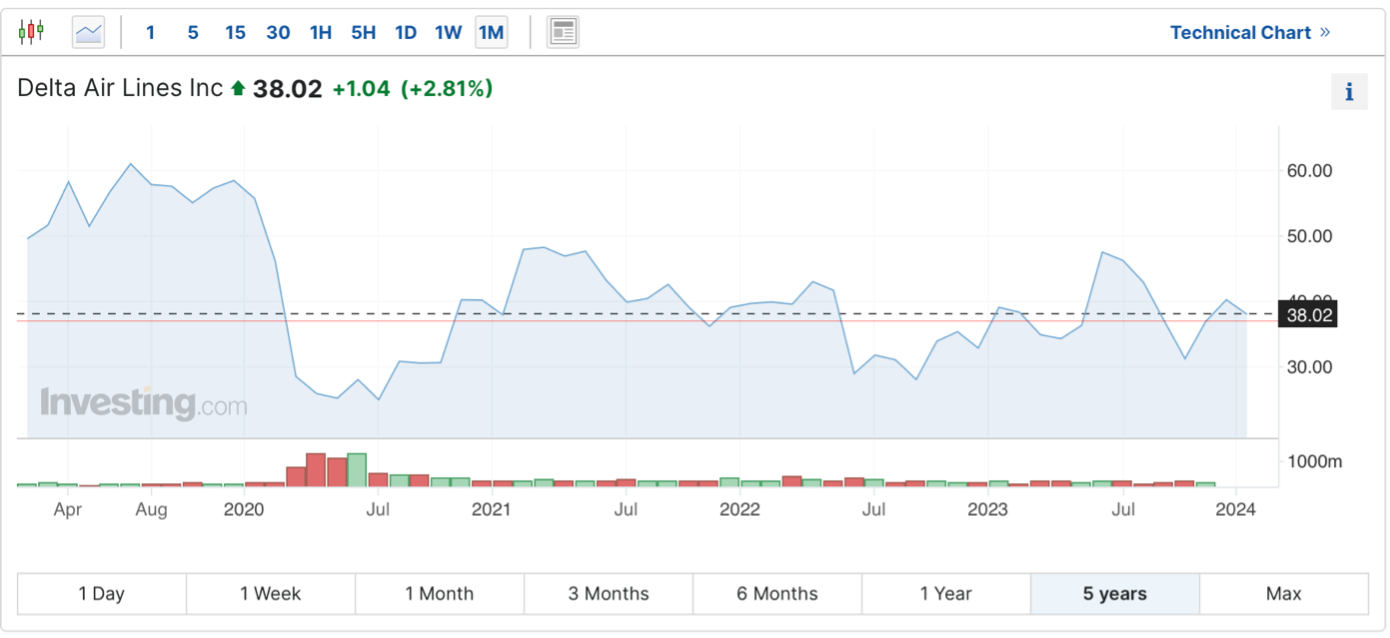
Delta Air Lines, emerging robustly from the pandemic, registered a significant revenue increase to $58 billion in 2023, up 14.6% from the previous year. Despite this growth, Delta’s stock faced a near 10% drop post-earnings, primarily due to tepid 2024 free cash flow guidance. The company now trades at an attractively low forward P/E ratio of 6, against a backdrop of broader economic uncertainties and concerns about the airline industry.

While Delta has successfully navigated labor challenges and a pilot shortage, maintaining a respectable operating margin of 9.5%, its past performance has seen even higher margins. A notable aspect of Delta's resilience is its limited exposure to Boeing, amidst the aerospace giant's ongoing troubles, and a strong partnership with Airbus. Furthermore, Delta's credit card operations, in collaboration with American Express, contribute significantly to its revenue, offering a high-margin, steady income stream. This diversification is pivotal in cushioning the airline against sector-specific headwinds.
Although Delta appears undervalued with its current stock metrics, investors should consider its substantial debt and the capital-intensive nature of the airline industry. The company’s ability to convert earnings into free cash flow remains a critical factor for potential investors. For those optimistic about the airline sector, Delta presents an interesting opportunity, balancing its historical brand strength with current financial challenges.

